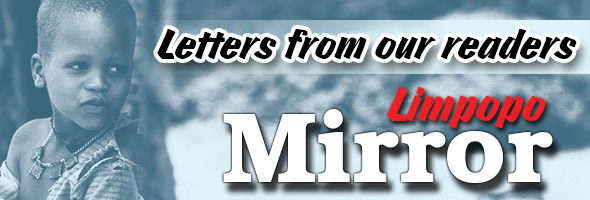

Inequality: What more can still be done?
Date: 03 September 2018 Read: 34854
South Africa is the worst in inequality where 80 % of the population remain poor, while 20% constitute the richest according to the Stats Labour Force report of 2017.
Terreblanche S says, " Members of the poorest half of the population are still relatively uneducated, unskilled without formal jobs and deprived of information about their rights and opportunities." It is against that background that government has taken a conscious decision to make inequality one of its key priorities.
While the democratic dispensation opened a lot of opportunities, we have seen the rapid growth of the middle class which also exacerbated the situation. As we speak, CEOs of state-owned entities are paid exorbitant salaries which necessitated cabinet to task the Presidential Review Commission to review their salaries with a view to standardize them.
When poor people go to the bank to apply for loans to buy houses or cars, they are required to have guarantee in the form of property which they don't have. In that way the rich become richer while the poor become poorer. Since 1994, government has taken some measures to tackle inequality and reduce poverty which led to poverty declining mostly because of the introduction of social grants. So far, there are 17 million people benefiting from the social grants. Other measures include the School nutrition program, Youth employment subsidy, Free basic services, no Fee-paying schools Policy and RDP housing amongst others.
There must be inclusive growth in that economic growth should be able to create permanent jobs, so that people must be their own job creators rather than relying solely on government for employment. According to Patrice Motsepe, a step further can involves the introduction of tax holidays, tax incentives and tax dispensation that allows significant investments like we used to do in South Africa for the mining industry. The role of small and medium enterprises cannot be overemphasized in closing the gap between the rich and the poor.
Government must not only assist in funding and training but also encourage public-private partnership if we are to achieve radical economic transformation. Even procurement processes must be biased towards those SMMEs by buying from them as well as securing other services. In May 2018, government announced the minimum wage of R 3500,00 which is a good start though not the living wage as President Ramaphosa stated but will as well assist in closing the gap between the rich and the poor.
The recently taken resolution by parliament on the expropriation of land without compensation will go a long way in closing the gap between the rich and the poor. The minority own a lot of underutilized hectares when the majority needs it for agricultural and human settlement. Pallo Jordan argues correctly that it is completely unfair to make people who have been hobbled by chains to compete with all the others. The introduction of free education by government for first-year students which started this year is highly commendable.
In that way, inequality will be drastically reduced. This is one sector that continues to experience serious inequality as schools particularly in the rural areas are dilapidated with lack of materials and shortage of educators. All other stakeholders including the private sector must play their role in that. - Moss Tseli
Mr Moss Tseli is a member of Parliament of South Africa who serves in the Portfolio Committee on Communications and Public Enterprises. He writes in his personal capacity.
|
|
Tweet |

We must know where we are if we want to know where to go
Concerned about shutting down of Tshakhuma market
A tribute to an honourable comrade
“Mkhwebane is a political pawn!”
“Disband management of Vhembe Health”
Authorities not very honest about illegal posters
“It is the Minister of Police”
Municipality prefers violence to peace
We would also have been successful, says Legal Aid SA
“Your reporting remains unbalanced”
Open letter to TVEP stakeholders
Inequality: What more can still be done?
Take good care of your journalists, they are scarce

Preference is given to short, factual letter concerning local matters. The editor reserves the right to shorten letters.
Click here to email us your letter.
Anonymous letters, where no details such as the name and address of the writer are supplied, will not be considered for publication. Readers who wish to remain anonymous must indicate this in the letter, but must still provide their details. Such detail will be confidential and will not be made available to outside parties.


